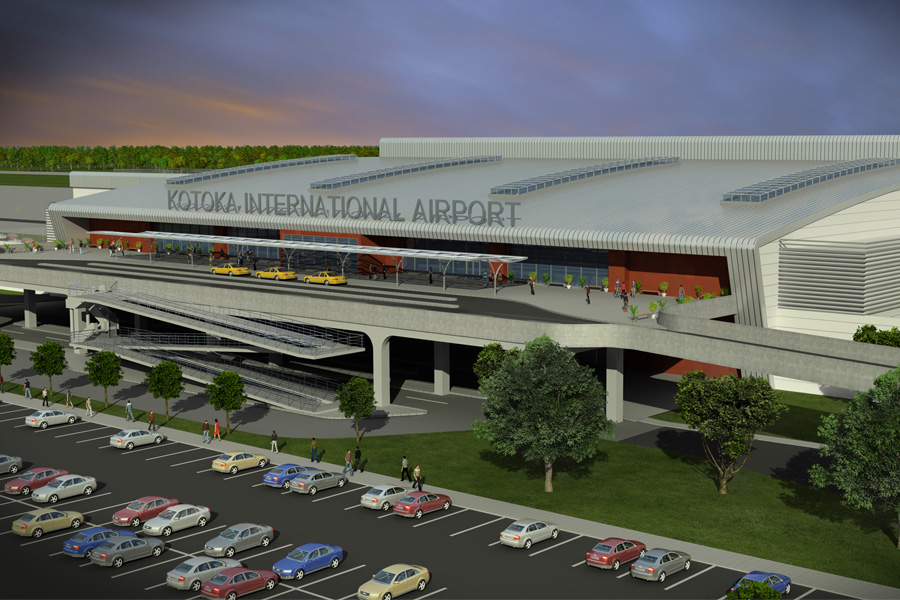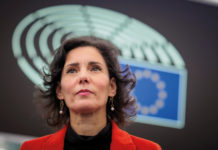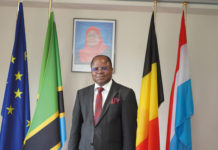An economic mission organised by AWEX, FIT and Hub Brussels in collaboration with CBL-ACP will led a Belgian delegation to Guinea and Ghana from December 4 – 8 2018. This was a tremendous opportunity for the economic delegation to get to know these two countries further in depth through field visits, special sectorial visits and face-to-face meetings with local enterprises. We looked at the various interesting aspects of both economies and present 9 interesting opportunities for both countries.
Ease of doing business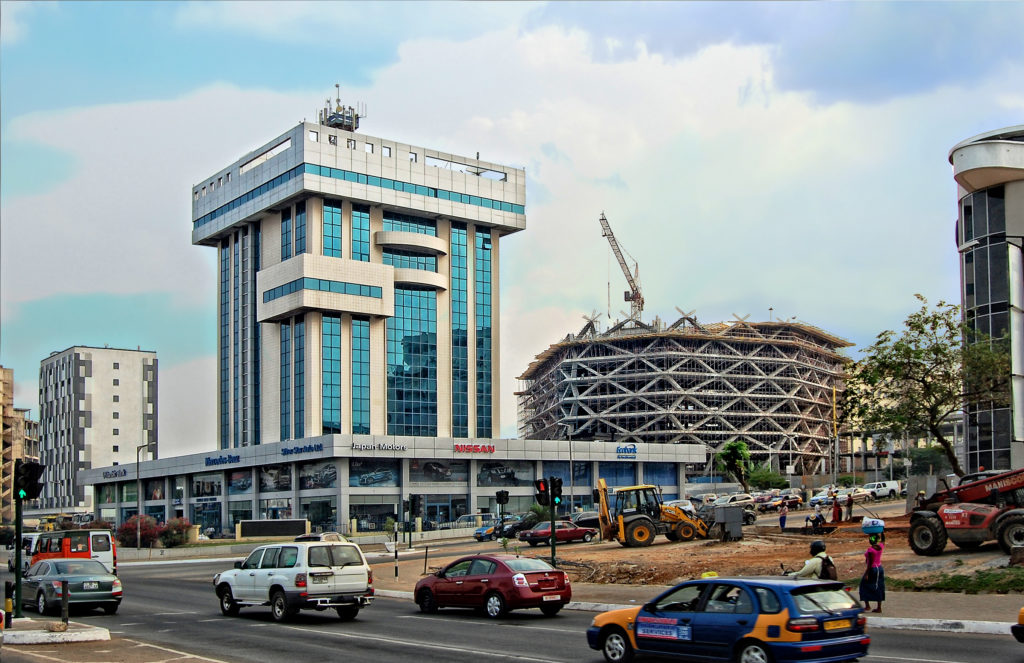
Both countries are doing their best to present the most interesting profile possible for foreign investors. While Guinea was recently in Brussels to speak to investors about their different possibilities to invest through PPP’s in the framework of the National Plan for Economic and Social Development Plan, Ghana has not been at rest with many reforms helping it place itself at the 114th place in the ease of doing business, it is slightly ahead of Guinea ranked at 152.
Access to regional markets
Along with sharing the same amount of geographical surface, both countries also share membership of the same communities: ACP, ECOWAS, IMF, UN and African Union. Seeing that the ECOWAS allows both countries to have regional market access to up to 349 million consumers, this advantage is shared between Ghana and Guinea making the mission especially attractive for investors and businesses seeking to establish a presence in both countries.
Maritime infrastructures: Tema vs Conakry?
Ghana and Guinea both have great maritime infrastructures that offer solutions for container shipping. Recently renovated or soon to be renovated, both ports offer international standards of the highest level thanks to massive investment through Private Public Partnership.
Facing the Gulf of Guinea, Ghana’s two main ports are located at opposite ends of its 540 km long coastline. At the eastern end, Tema, the larger port, lies some 28 km by road from the capital, Accra. Takoradi, at the western end, is situated some 225 km by road from the capital. Both ports are owned and operated by the Ghana Ports and Harbours Authority (GPHA).
Protected by two breakwaters, Tema has a 240m wide entrance channel with a minimum water depth of 12.5 m. On average, the port receives some 1,650 vessel calls per year, mainly from containerships, general cargo ships, tankers and cruiseships.
In addition to handling domestic trade, Tema serves as an outlet for Ghana’s landlocked neighbours, Burkina Faso, Niger and Mali. Container throughput has been very much lower at Takoradi than at Tema. In 2015, Takoradi’s container traffic amounted to only 58,093 teu compared with 782,502 teu in Tema. A lack of container terminal at Takoradi has deterred traffic, but proposals for the construction of a container terminal at Takoradi were included in a $250m port modernisation scheme announced by GPHA in 2004. However, these proposals were withdrawn following the discovery, in 2007, of oil and gas offshore in the Jubilee field in the Gulf of Guinea.
In 2009, GPHA announced that a $700m programme would be undertaken to make Takoradi ready to serve the country’s new oil and gas industry. Most the supply vessels serving the offshore rigs now operate from Takoradi.
In 2012, China Harbour Engineering Company began the first phase of a major port expansion programme at Takoradi. The main breakwater was extended and new berths constructed while the port basin was dredged to 16m. In a further phase, container facilities are planned which will enable Takoradi to accommodate containerships of up to 10,000 teu capacity.
At Tema, the extension of the MPS Container Terminal to allow it to handle an annual throughput of 3.5m teu could change the status quo. In addition to domestic traffic, this throughput capacity will enable Tema to handle substantial volumes of containers destined for the other West African countries.
As container traffic continues to rise, the need for a regional hub to serve the West African countries will become more pressing but there is likely to be strong competition from the neighbouring countries. However, Tema is strategically well located and will be fully equipped to handle large containerships, meaning that Ghana’s vision of becoming a regional hub port could well be realised.
Conakry Terminal has carried out extension work to its wharf
– a new berth 12/340m – and to the 12-hectare container terminal in the framework of a concession agreement of 25 years with the Bolloré Group. These projects, together with the installation of two new gantry cranes and a 5.8 MGW power plant, put the Port of Conakry at the level of the highest international standards.
Conakry Terminal also has a project to develop an Inland container depot with a rail connection to streamline the movement of goods. Bolloré Ports, which has a workforce of nearly 460 at Conakry Terminal, aims to create a competitive regional transhipment platform.
We invite you to discover more about this
Macro-economic stability, growth and stability
Both candidates show a similar profile with regards to stability and macro-economics. Guinea can count on bauxite to help sustain its economic growth while Ghana can count on the exploitation of the offshore TEN project plants. Both countries have decided to set their priorities on diversification through the development of agriculture, infrastructure and energy, aiming to create inclusive growth. Presidential elections took place in 2016 in Ghana and saw the election of President Akufo-Addo while Guinea’s Presidential elections took place in 2015.
Industrialisation & manufacturing
Both countries have understood the importance of being able to produce transformed goods and have focused on the importance of producing manufactured goods in their countries, improving their self-sufficiency and dependency on imports.
The “one district, one factory” signature policy that saw President Akufo-Addo elected in 2016 aims to re-ignite growth by creating inclusive growth through factories in every district. In Guinea, over 50% of the arable land is available and investors can find excellent weather conditions and water supplies to easily transform these into interesting investments, as well as generating electricity thanks to hydraulic resources.
Air transport infrastructure
Ghana and Guinea can both position themselves as hub countries, having an interesting geographical location for investors and business. With the recent completion of the Terminal 3 of the Kotoka International Airport, which has a capacity of welcoming 5 million passengers per year, Ghana aims to reach over 50 airlines flying in and has a high international level airport.
Renovations started in 2009 at the Conakry International Airport aiming to increase its capacity – currently at 300.000- to welcoming over 1 million passengers. The Ebola crises of course saw many airlines desert the airport but they have since started returning one after the other.
Investment opportunities
Both countries have set their priority sectors for investments and have opportunities ready and waiting. In Ghana, these are situated in the sectors of manufacturing, agriculture & agro-processing, energy, oil & gas, infrastructure (roads, railways, ports, airports) and services.
In Guinea, the priority sectors, a list of 170 leading projects have been identified in the various fields of agriculture, infrastructures, energy, education and training. These projects will be realised in the framework of the National Development Plan in the form of a Public Private Partnership. Amongst the priority project are the construction of production centres for plant material, the creation of a Special Economic Zone in Boké, the construction of the road Boké-Gaoual, the rehabilitation of hydraulic powerplants, the rehabilitation of the universities of Sonfonia, Labé, Kankan and Nzérékoré.
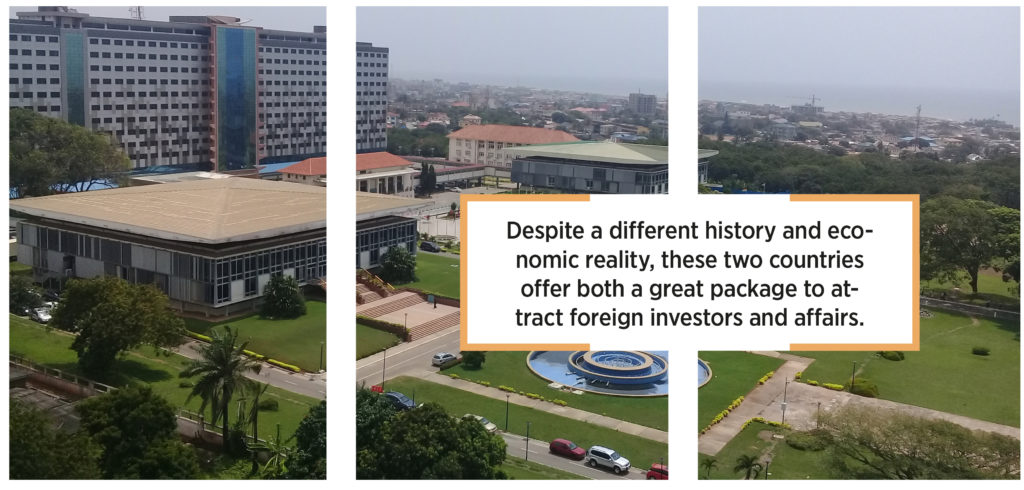
Special Economic Zones
Attractive to investors, interesting for the development of ecosystems of business zones, Special Economic Zones are a key-factor for maintaining strong economic growth.
A special law created a Special Economic Zone in Boké in 2017. It aims to help sustain the strong economic growth in Guinea and reinforce the implementation of the priority projects set out in the National Development Plan. Direct foreign investments have been on the rise, especially in the mining field and the Boké region in known for its vast mining ressources and strong attractiveness for foreign investors.
The region holds important bauxite reserves and is located close to the maritime ports of Boké-Winning and Kamsar. Synergies are possible with other mining projects in the region.
The presence of a Special Economic Zone is needed to offer favorable implantation conditions to foreign enterprises and concentrate their implementation. The creation of the Boké SEZ will be done over 20 years in a total of 3 phases, representing a global cost of 2,080 million dollars. The advantages for foreign businesses to be present will be a special law regime that will allow for fiscal advantages and procedure facilitation, as well as transport infrastructures. The long term estimated impacts will be the creation of a mining production and exportation hub for East Africa, as well as increase of foreign investment and the creation of many permanent jobs in the Boké region.
In the long term, Ghana aims to develop at least one large park in all ten regions. These parks could be multipurpose industrial parks, sector specific zones or special economic zones. The sector of these parks could be related to agro-processing, pharmaceutics, automobile assembly parking, textiles & garments, petrochemical, food processing, IT and equipment and electronic. A first concrete Special Economic Zone is envisaged in the region of Dawa, in collaboration with Mauritius which has great experience in financial services, ICT and manufacturing.
Tax incentives
Favourable conditions await investors & businessmen in both countries and the Investment Promotion Agencies of both countries extensively cover the various fiscal advantages offered in the various sectors. Low tax rates are offered during up to 8 years in various rates and reductions in certain import taxes are also offered. Discover the investment code for Ghana and Guinea and discover all the incentives through our website.
Unconditional transferability of dividends and net profits after tax to home countries are guaranteed in both countries and are an important asset for foreign investors. Despite a different history and economic reality, these two countries offer both a great package to attract foreign investors and affairs. Timing is perfect to discover more about the local opportunities, on the field.
![[:fr]shutterstock_777571825[:]](https://perspectives-cblacp.eu/wp-content/uploads/2018/12/shutterstock_777571825-696x522.jpg)
